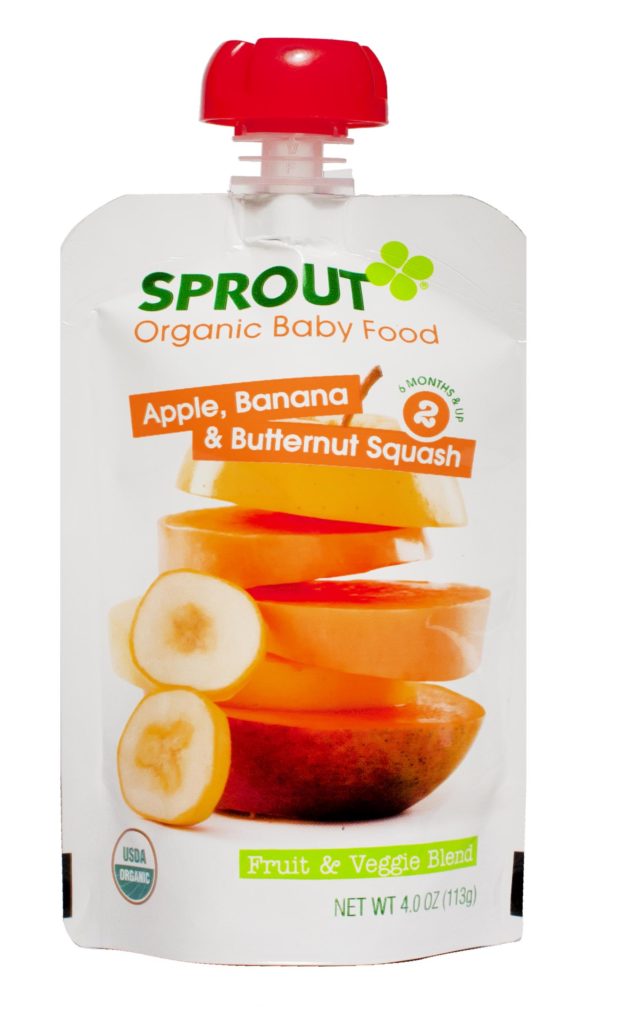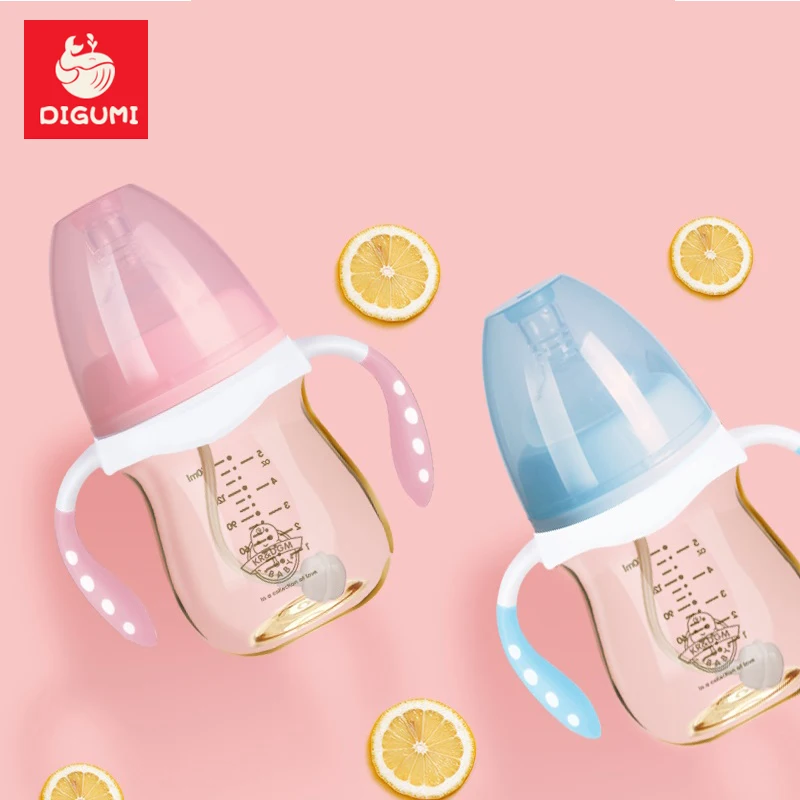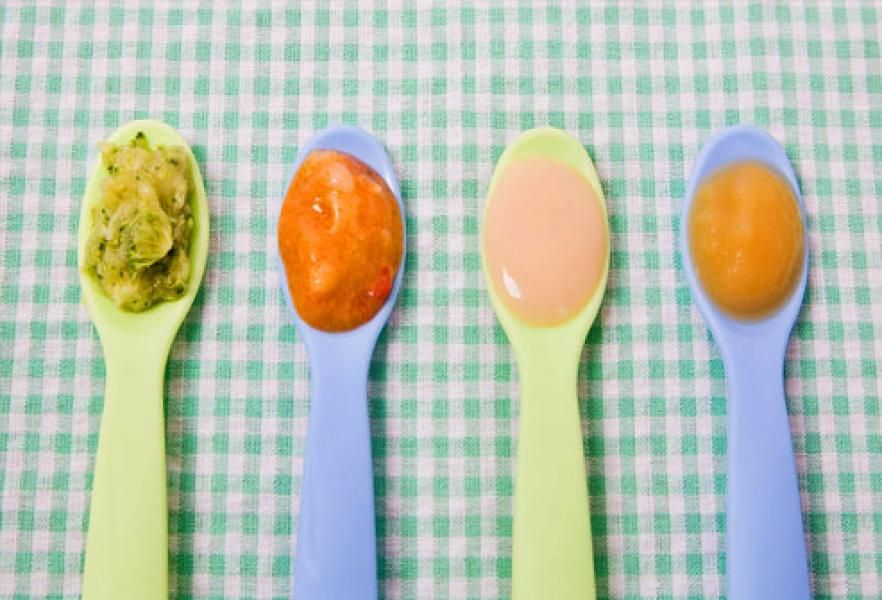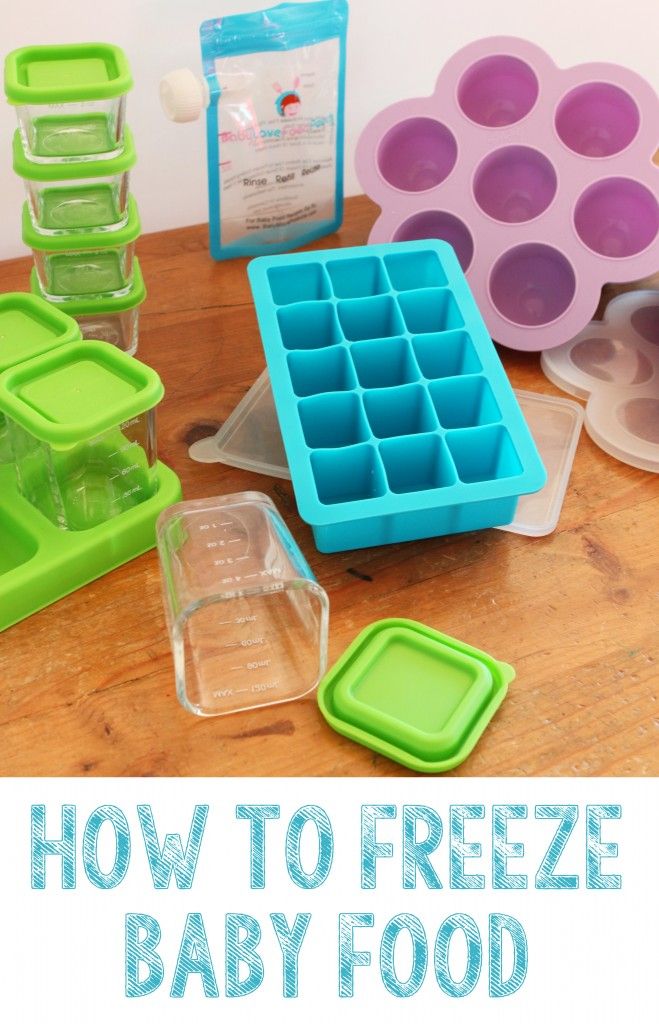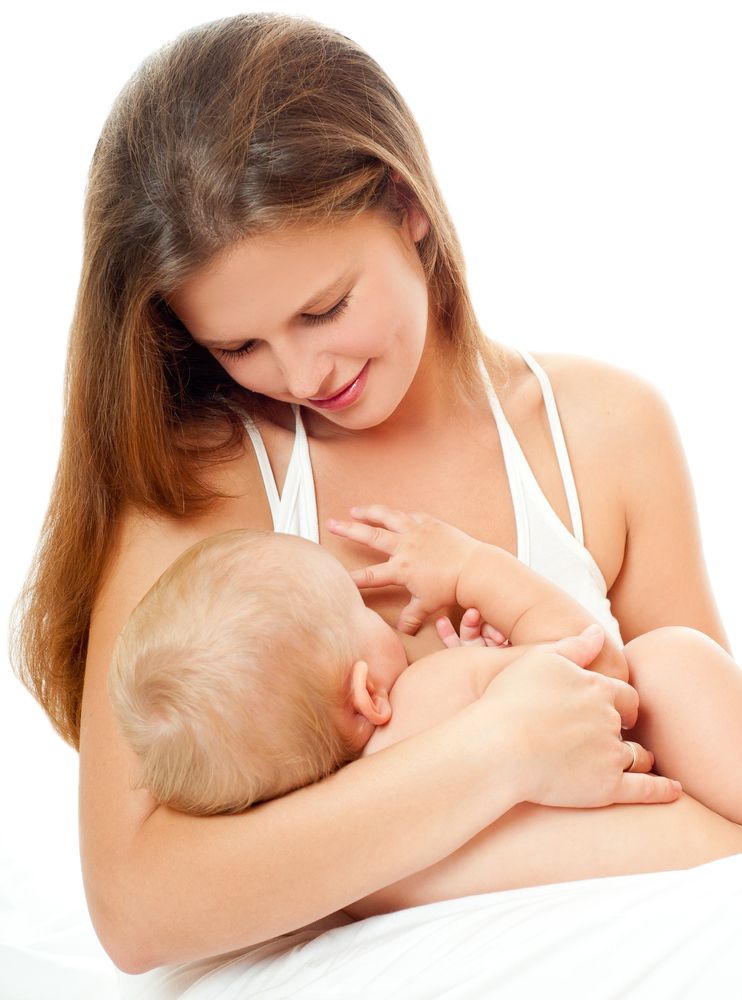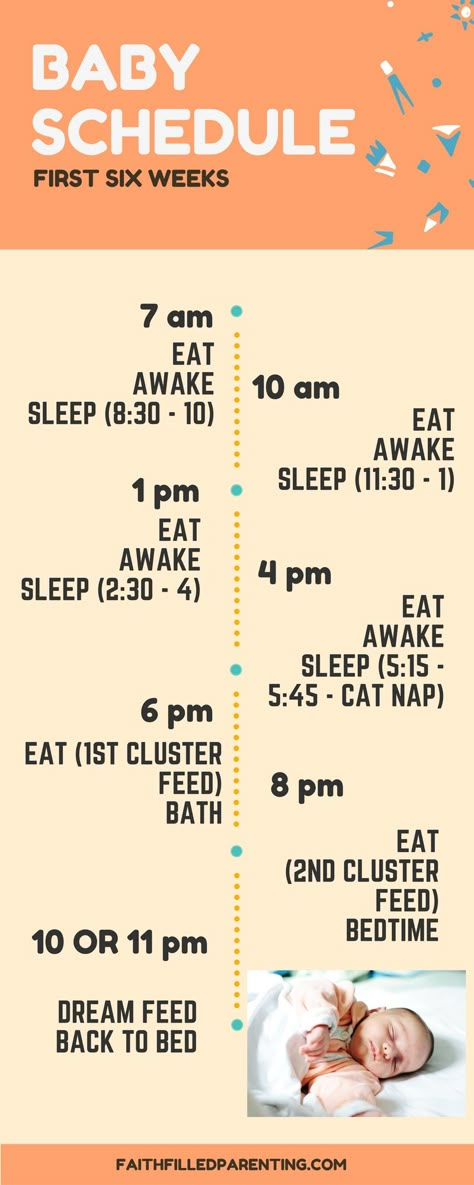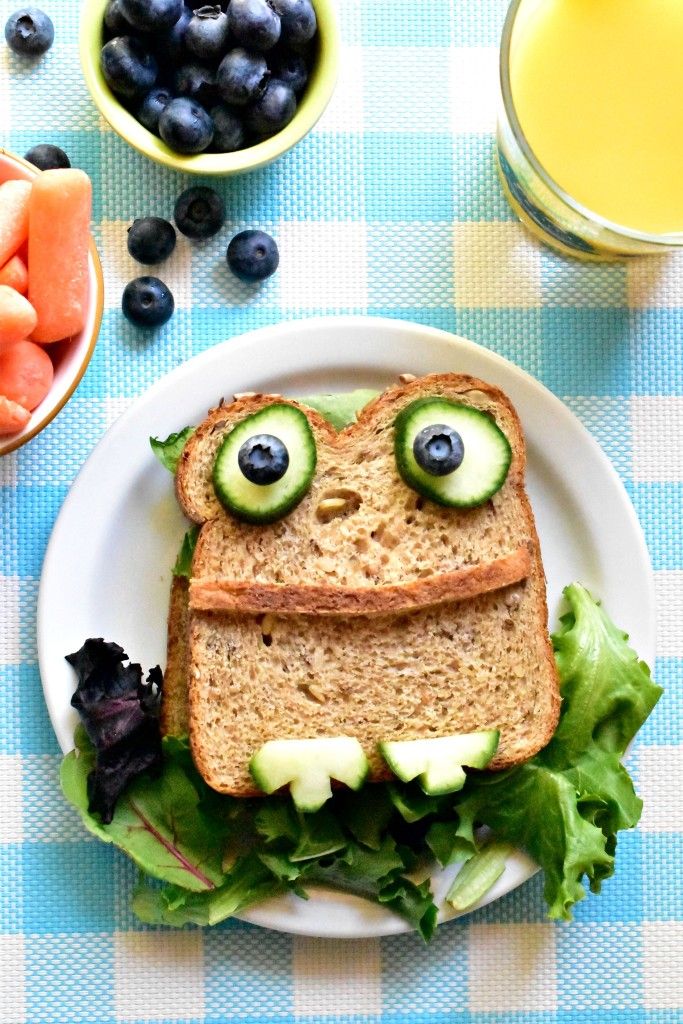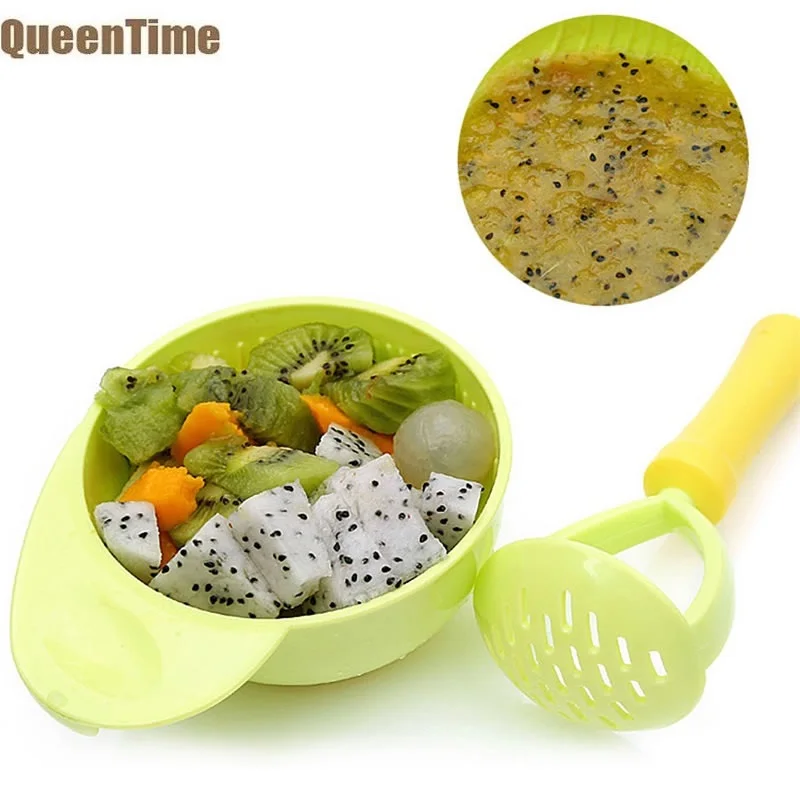Is organic baby food safe
Is Organic Baby Food Healthier for Babies?
Keywords
Holly Daniels Nelson
So, you’re a new parent and up until now, your baby has been content with either breast milk or formula. But now, your baby is showing an interest in the food on your plate. Once you’ve determined your baby is developmentally ready for solids (she can sit without support, doesn’t automatically push solids out of her mouth, is willing and able to chew, and is interested in food ) how do you know where to start? Since junior has far fewer teeth than you do, you begin with food that’s easier to swallow.
The baby food aisle at the grocery store is filled with an overwhelming number of options. Do you start with cereal or vegetables? Which is better for your baby: organic, conventional, or homemade baby food? To find out, I asked Amelia McBride, MS, CD, a pediatric dietitian at Intermountain Riverton Hospital in Riverton, UT, who works in Primary Children’s outpatient services.
What type of food should you feed your baby first?
As a dietitian, Amelia encourages babies to start with vegetables and then add fruits, so they learn to like vegetables, since fruits taste sweeter. “Cereal is thought to be the gold standard for introducing solids, but there’s no indication it’s better or worse than starting with other pureed foods,” says Amelia. “If you want to start with cereal, I’d recommend oatmeal, due to recent reports of high arsenic levels in rice cereal.”
Which is better for your baby: organic, conventional, or homemade baby food?
“There are pros and cons to all three types of food, but from a nutrition standpoint, organic options aren’t any more nutritious, and cost can be a barrier for some families,” says Amelia.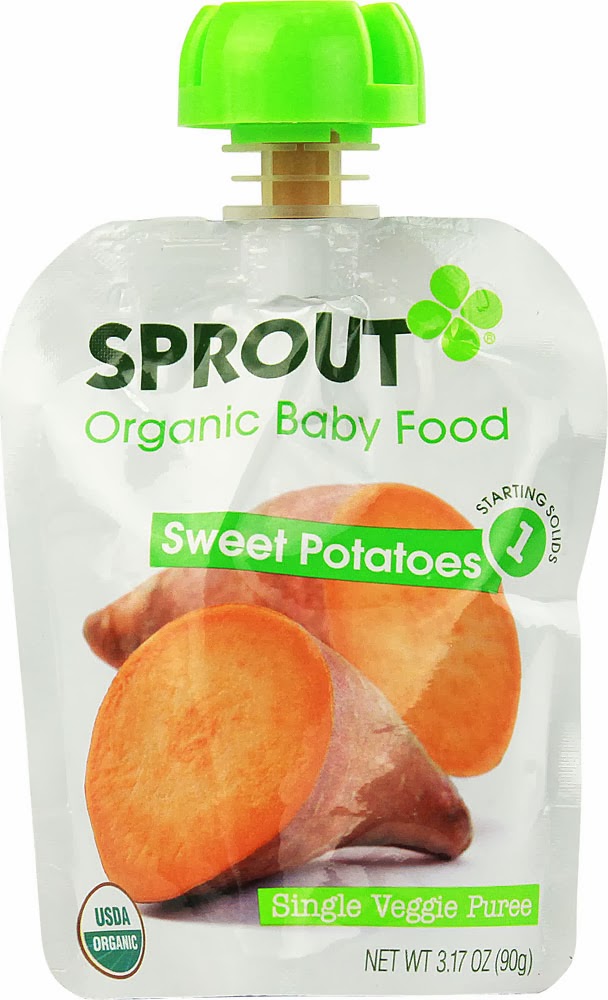
A Stanford University study found organic baby food may have a lower risk of pesticide contamination, but conventional baby food rarely exceeds pesticide limits set by the EPA.
“If organic production methods are important to you from an environmental standpoint, you may feel organic is worth the extra cost,” she adds. Knowing the pros and cons of organic, conventional, and homemade baby food can help you decide what to feed your baby based on your budget, lifestyle, and time constraints.
Pros and cons of commercial baby food
Pros
- Convenient, ready to use
- Doesn’t need to be prepared or refrigerated until after it’s opened
- Longer shelf life
- Met safety requirements in the preparation process
Cons
- Limited to what’s available
Are pouches or jars better?
“Pouches are convenient for just putting a small amount on the spoon, so usually there’s less waste and less mess,” says Amelia.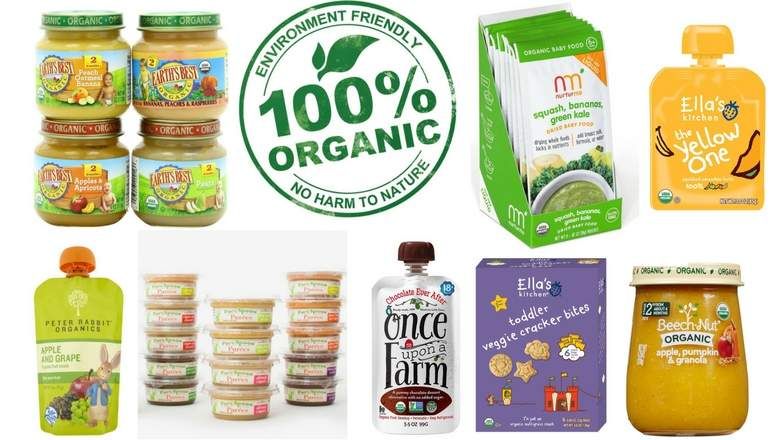 They’re less likely to spill or break, but may cost more. “The biggest drawback is that pouches don’t help your child develop as many motor skills as using a spoon. They’re great for on the go, just don’t use them all the time,” she adds.
They’re less likely to spill or break, but may cost more. “The biggest drawback is that pouches don’t help your child develop as many motor skills as using a spoon. They’re great for on the go, just don’t use them all the time,” she adds.
Jars are economical but can spill or break. They’re good to use at home when you can put food in a dish so your child can learn to use a spoon. “Once you’ve put a used spoon in the food, the saliva can contaminate the food, so throw away any food that has saliva in it,” Amelia says.
Pros and cons of non-organic commercial baby food
Pros
- Less expensive
- Wide variety
- Readily available
- Available through food assistance programs
- Food safety guidelines have been met
Cons
- Potential exposure to pesticides, but rarely exceeds pesticide limits
Pros and cons of organic commercial baby food
Pros
- Same advantages as conventional baby food
- Slightly less chance of pesticide contamination
Cons
- Limited to what’s available
- Usually more expensive
- Not available everywhere or through some food assistance programs
Pros and cons of homemade baby food
Pros
- Economical
- You can vary the texture by pureeing or mashing
- You can use what the rest of the family is eating as baby is ready for it
- You can use fresh, frozen, or canned fruits/vegetables and cooked meats
- Food that can be mashed fresh without cooking may have more nutrition than canned versions (ripe bananas, avocados, pears, etc.
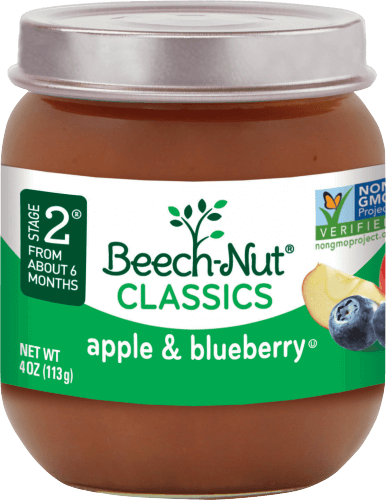 )
)
Cons
- Time commitment
- Not shelf stable. Must be refrigerated within two hours and keeps only 24-48 hours.
Babies can be at a higher risk for food-borne illness since their immune system is still developing. Be sure your baby’s food is prepared safely with these tips:
- Wash your hands before preparing the food and feeding your baby.
- Avoid cross contamination, especially when handling raw meats.
- Cook meats to recommended temperature.
- Rinse fruits and vegetables.
- Avoid sweetening or adding salt.
- Use a hand grinder, electric grinder, blender, or food processor to puree.
- You can thin food with breast milk or formula if needed.
- You can store items that contain dairy, eggs, and cooked meat in the refrigerator for up to 24 hours and fruits and vegetables for up to 48 hours. Freeze extra food in child-sized portions and thaw in the microwave when ready to use.
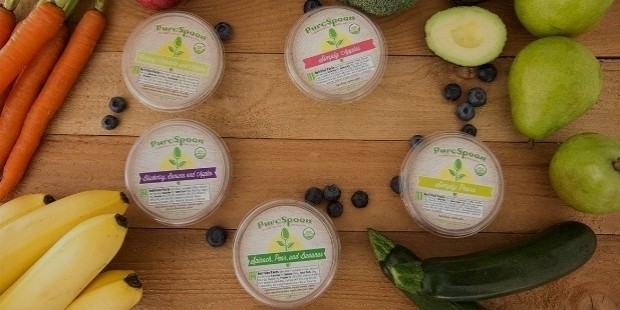
- Always test heated food to make sure it’s cooled enough to feed your baby.
- When introducing a new food, wait one to two days in between servings. If you have a family history of food allergy, talk to your pediatrician.
Making a mess while eating encourages learning
As your baby gets older, add texture and let them feed themselves. Your baby will let you know when they’re full if they turn away or spit things out. “Don’t feed your baby more than they want. Follow their feeding cues,” says Amelia. Encourage a variety of foods. Different natural colors mean different vitamins. Let them experience food through the five senses. It will be exciting, fun, and messy!
Food products to avoid until your baby is at least one year old
- Honey
- Home-canned foods
- Unpasteurized dairy products (raw milk and some soft cheeses)
- Cow’s milk
If you have specific questions about how your baby is responding to food, contact your child’s doctor, pediatrician, or an Intermountain dietitian.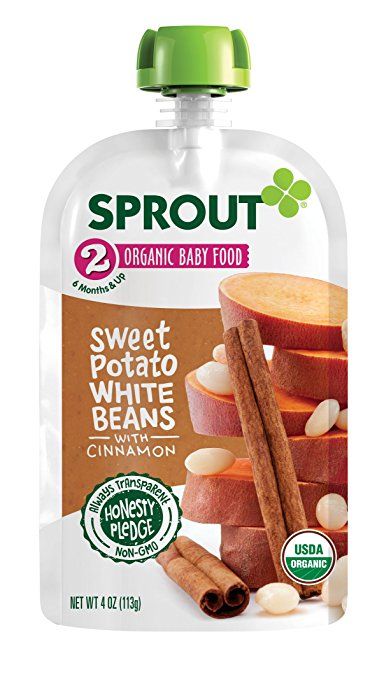
Intermountain Moms
Last Updated: 4/23/2018
-
Sports Medicine
-
Intermountain Moms
-
Intermountain Moms
-
Intermountain Moms
-
LiVe Well
-
LiVe Well
-
Pediatrics
-
LiVe Well
Copyright ©2022, Intermountain Healthcare, All rights reserved.
Should I Be Buying Organic Baby Food? We Spoke to an Expert (Exclusive)
toggle
Home > Small Changes > Sustainable Living > What Is Sustainable Living?
Source: Getty Images
In the realm of parenting, there's an ongoing argument regarding baby food — does it have to be organic? Is feeding your child an all-natural brand truly necessary, or can parents get by with purchasing a cheaper alternative, sans that pricey organic label? The argument has been happening for several years now, and as health-minded folk, we were determined to get to the bottom of it.
Article continues below advertisement
"Some people might buy organic baby food to limit their babies' exposure to [pesticide] residues — since infants might be more susceptible to harm potentially caused by pesticides than are adults. However, residues on most products — both organic and nonorganic — don't exceed government safety thresholds," Head of Nutrition for Nucific, author, and renowned TV dietary expert, Dr.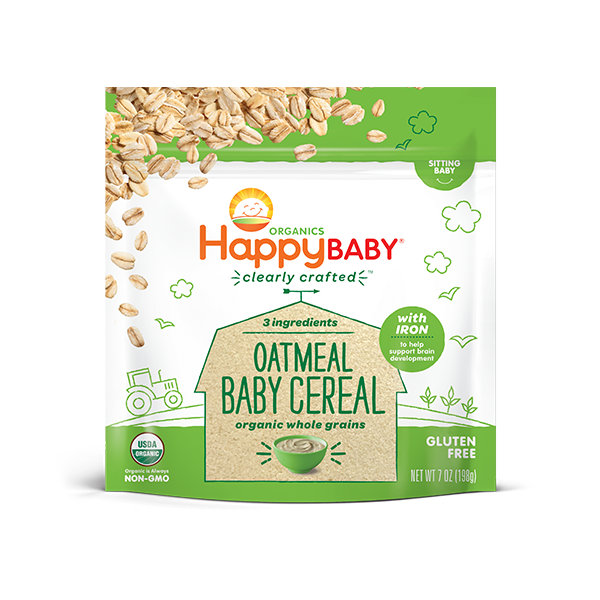 Amy Lee, tells Green Matters in an exclusive email interview.
Amy Lee, tells Green Matters in an exclusive email interview.
Keep reading for more information on this matter.
Source: Getty Images
Article continues below advertisement
Is it important to feed your baby organic foods?
Most parents want to feed their babies the safest foods possible, but organic doesn't necessarily mean safe. In February 2021, unhealthy traces of metals were discovered in a number of baby food brands, including some that sported the pricey organic label. That said, organic doesn't necessarily mean "healthiest" or "safest" — this simply happened because of metals in the air, soil, and water, without knowledge from the farmers or manufacturers.
Buying organic food, however, does guarantee that there aren't chemicals or pesticides knowingly used in the growing process for any ingredients that go into that little jar of mush. So, purchasing all-natural food over anything else does reduce the risk of having your baby exposed to those types of chemicals.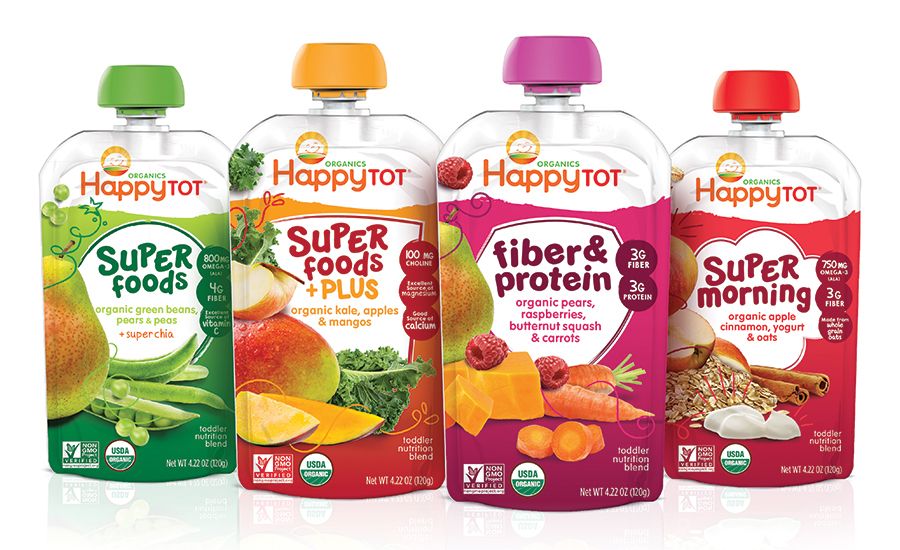 However, Lee says it isn't absolutely necessary.
However, Lee says it isn't absolutely necessary.
Article continues below advertisement
"The fact is, there is no hard data on what happens to babies who grow up as adults who were raised on organic vs. conventional foods. No one can say who’s getting the benefit or not," Lee tells us. "We know the nutrients are all the same when it comes to comparing an organic apple vs. a conventional apple; but ultimately, it is this fear of the unknown of what the baby is being exposed to."
So, while the hype may have some truth to it, organic isn't the only way to go.
Source: Getty Images
Article continues below advertisement
Are there cheaper alternatives to organic baby food?
Lee tells us that there are cheaper alternatives to buying organic baby food, because organic brands can be incredibly expensive. Raised Real, for example, can cost up to $5 per meal, which is incredibly expensive and not doable, especially for young or low-income parents. Luckily, though, there are many cheaper alternatives to organic brands, that definitely won't sacrifice your baby's well-being.
"There are food products that are less likely to hold onto more pesticides after harvest. Meaning fruits and vegetables that have a naturally thick skin are probably things you can buy conventional. Meaning, avocado, cantaloupes, oranges versus things like spinach, strawberries, grapes, which may hold onto a lot of residues," she says. You can check out the 2020 Dirty Dozen and Clean Fifteen to learn which produce is more and less likely to hold onto pesticide residues.
Article continues below advertisement
But, Lee tells us you can get rid of the "residues" on non-organic food, to ensure they're totally clean."
"There are techniques that I have seen in ways to wash these residues off by use of white vinegar or soaking things longer which would allow someone to buy conventional without the fear."
Source: Getty Images
Article continues below advertisement
Is making your own baby food a good idea?
Making your own baby food may be cheaper, but is it truly worth the extra effort, as opposed to buying ready-made meals? Lee tells us it's definitely safe and worth doing, if you have the time to do so.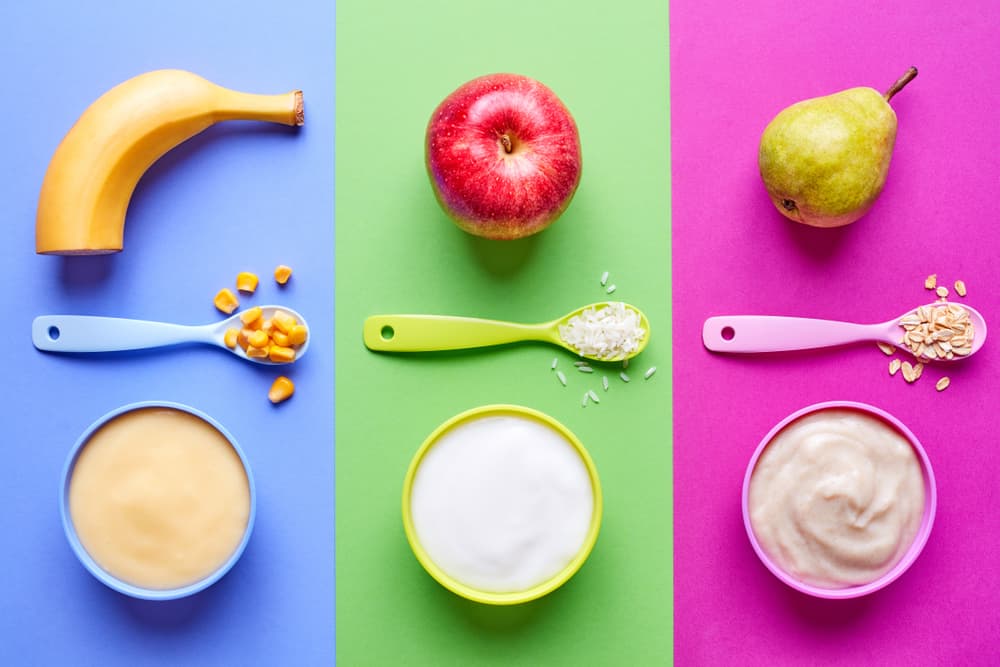
"Making food at home is always safe and worthwhile! If you look at any food label, there tends to be more sugar added as well as the natural need for preservatives," Lee says.
"Yes, it does mean that anything homemade may perish and you must plan ahead to eat it up before it goes bad, and you have to cook more often," she continues. "With cooking, you can control the amount you buy and of course, you can prep meals for babies as you do for adults. Put things in the freezer and use what you need. But I do feel that when food is homemade, there is more appreciation that goes into it and your baby would thank you."
Article continues below advertisement
Source: Getty Images
Parenting debates are truly never-ending, and you're likely to start a fight in a room of seasoned mothers by telling them organic baby food isn't totally necessary. So, new parents, rejoice: there are cheaper — and equally-safe — alternatives.
Advertisement
More from Green Matters
Latest What Is Sustainable Living? News and Updates
Advertisement
Organic vs Conventional Complementary Foods: What's the Difference - Parents.
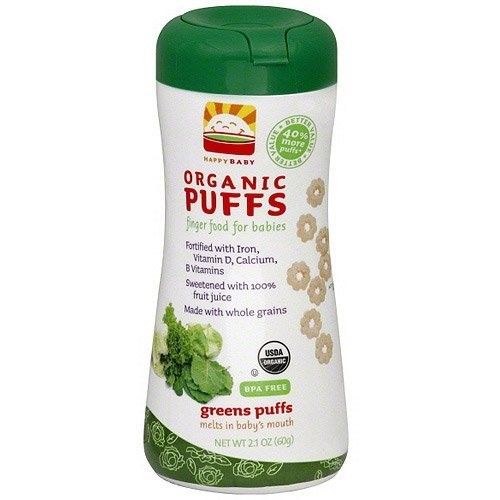 ru
ru Pro Nutrition
- Photo
- damircudic/Getty Images/E+
HiPP expert
Monogamy usually starts at 60 months of age
it is at this age that the baby's digestive system is ready to accept foods other than breast milk. Products for the introduction of the first complementary foods should be chosen very carefully. One of the safest options is monocomponent purees. Today, parents can find such products marked “organic” or “BIO” on store shelves: these labels mean that the food consists only of natural ingredients and does not contain any dyes, preservatives, flavors or GMOs. Such monocomponent purees contain only one vegetable, for example, broccoli or cauliflower, which are the safest for a child trying an unfamiliar product for the first time.What's the difference?
The main difference and the main plus of bio-products is the method of production. The fruits, vegetables and cereals that go into their preparation are grown according to the principles of organic farming, that is, without the use of pesticides, growth regulators, artificial fertilizers and pest control chemicals. In conventional agriculture today, the use of such substances, unfortunately, is quite common. Their traces remain in the final product, so such food can harm the child, who is still very sensitive at an early age.
The fruits, vegetables and cereals that go into their preparation are grown according to the principles of organic farming, that is, without the use of pesticides, growth regulators, artificial fertilizers and pest control chemicals. In conventional agriculture today, the use of such substances, unfortunately, is quite common. Their traces remain in the final product, so such food can harm the child, who is still very sensitive at an early age.
Organic purees, cereals, soups and drinks are safer for the baby, while retaining their natural rich taste and the maximum amount of nutrients. We do not know how the fruits and vegetables sold in the store or in the market were grown, so making your own purée for the first complementary foods becomes unsafe. Only those parents who grow zucchini, cabbage, carrots and other products themselves and are confident in their quality (like Jamie Oliver) can be confident in the safety of home food.
Organic food is grown only in environmentally friendly conditions, therefore it minimizes the risk of harmful substances entering the child's body and reduces the likelihood of food allergies in the crumbs.
- Photo
- tatyana_tomsickova/GettyImages/iStockphoto
Strict control
Baby food goes through multi-level stages of quality control, and organic products go through even more checks by specialists. Experts observe its production at all stages: from choosing the soil to tasting the purees, cereals, soups and drinks themselves. Only after passing all the trials and tests, organic food receives the Organic or BIO labels, which guarantee the quality, safety and environmental friendliness of the product that will be included in the menu of a small child. Strict checks, environmentally friendly production, the absence of dubious components in the composition - all this makes organic nutrition a suitable option for the first complementary foods, and introducing a child to new foods is healthy and safe.
More useful materials about proper nutrition for the little ones - in our channel on Yandex.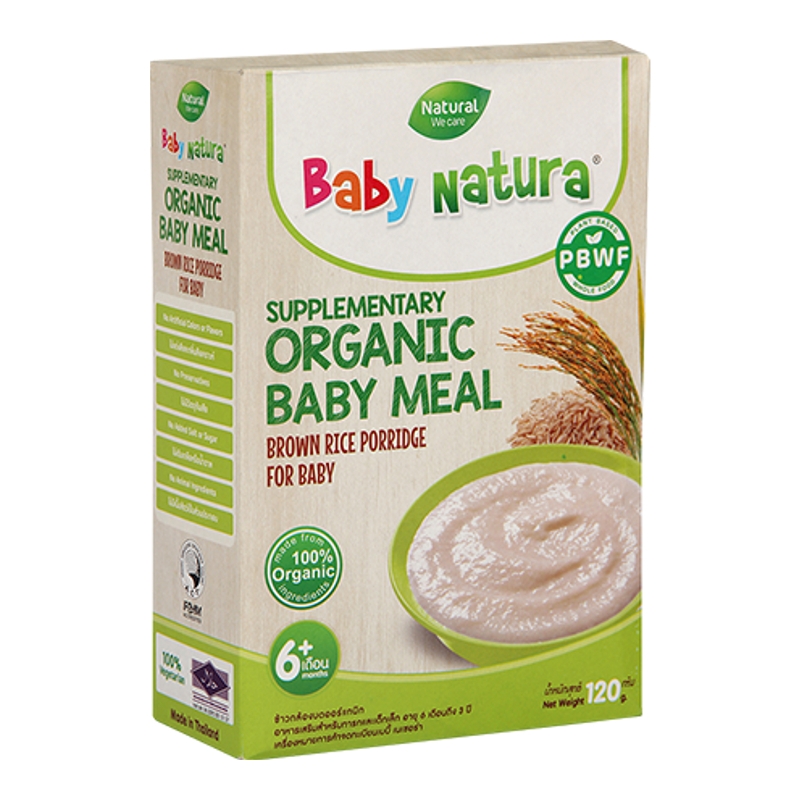 Zen.
Zen.
Lyubov Prishlaya
Today they are reading
Two queens side by side: images of Kate and Camilla on Memorial Day are discussed on the Web
How did the secret date of the Princess of Wales with her husband go raised like a son for seven years
Online broadcast and funeral at sunset: 8 features of the burial of Elizabeth II
Beauty is a family thing for them: Irina Shayk shared rare photos with her mother and sister
Organic baby food: benefits for babies from nature itself - Children about how to protect the child as much as possible and give him all the best. Adults increasingly prefer organic products, choosing them for themselves and their child, but not everyone understands what their features are. How is organic food different? What is its use? Is it safe for children? To find answers to these questions, we visited Bio Farm
of HiPP , which has been producing organic products for children for many years, and spoke with its head , Stefan Hipp.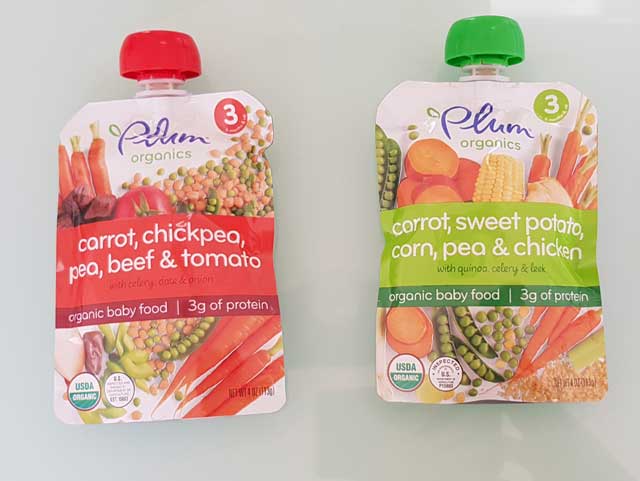
The content of the article
What is organic nutrition?
Many people think that organic food is food without the addition of chemicals, however, in reality, everything is a little more complicated. Arriving at the HiPP farm in Poland, we were convinced that the principles for the production of such products are based not only on the absence of harmful ingredients in the composition, but also on the quality of the raw materials themselves and respect for nature.
Organic baby food contains only natural raw materials. Such purees, soups or cereals do not contain any chemical components, therefore they will be absolutely safe, and parents can safely choose them for a novice gourmet as first complementary foods.
How is organic food produced?
At the HiPP farm, we saw with our own eyes how food is grown to produce organic food, which then ends up on the children's table.
Fruits, cereals and vegetables grow without the use of artificial fertilizers, pesticides and growth regulators, which are often used in modern agriculture and cause irreparable damage to the earth.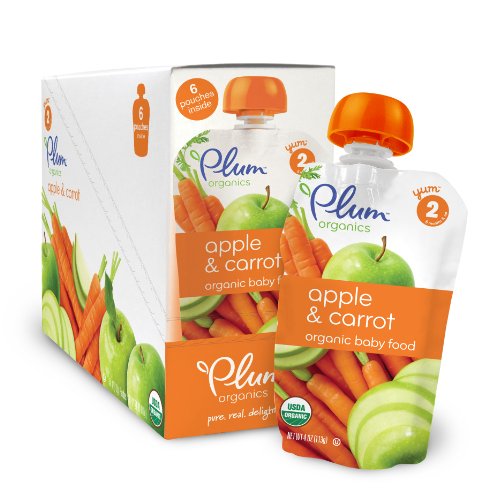 Organic farming developed by HiPP eliminates chemical constituents, therefore ensuring the production of safe and environmentally friendly food.
Organic farming developed by HiPP eliminates chemical constituents, therefore ensuring the production of safe and environmentally friendly food.
The land, which implements the principles of organic agriculture, is carefully selected and fertilized only by natural methods, for example, with the help of clover. The fruits ripen naturally - thanks to this, they retain all the beneficial properties, as well as a rich taste. In addition, the use of chemical-synthetic plant protection products is prohibited on HiPP farms. Instead, agricultural pests are fought with natural methods: for example, Colorado potato beetles are dealt with with the help of neem tree oil or rhododendrum decoction, and ladybugs are saved from aphids.
What are the benefits of organic nutrition?
Parents can be sure that they do not cause any harm to the child's body by treating the baby with organic puree, adding soup made from natural ingredients or organic juice to his diet. A balanced and healthy meal will ensure the growth and development of the baby, good condition and mood, as well as the formation of proper eating habits.